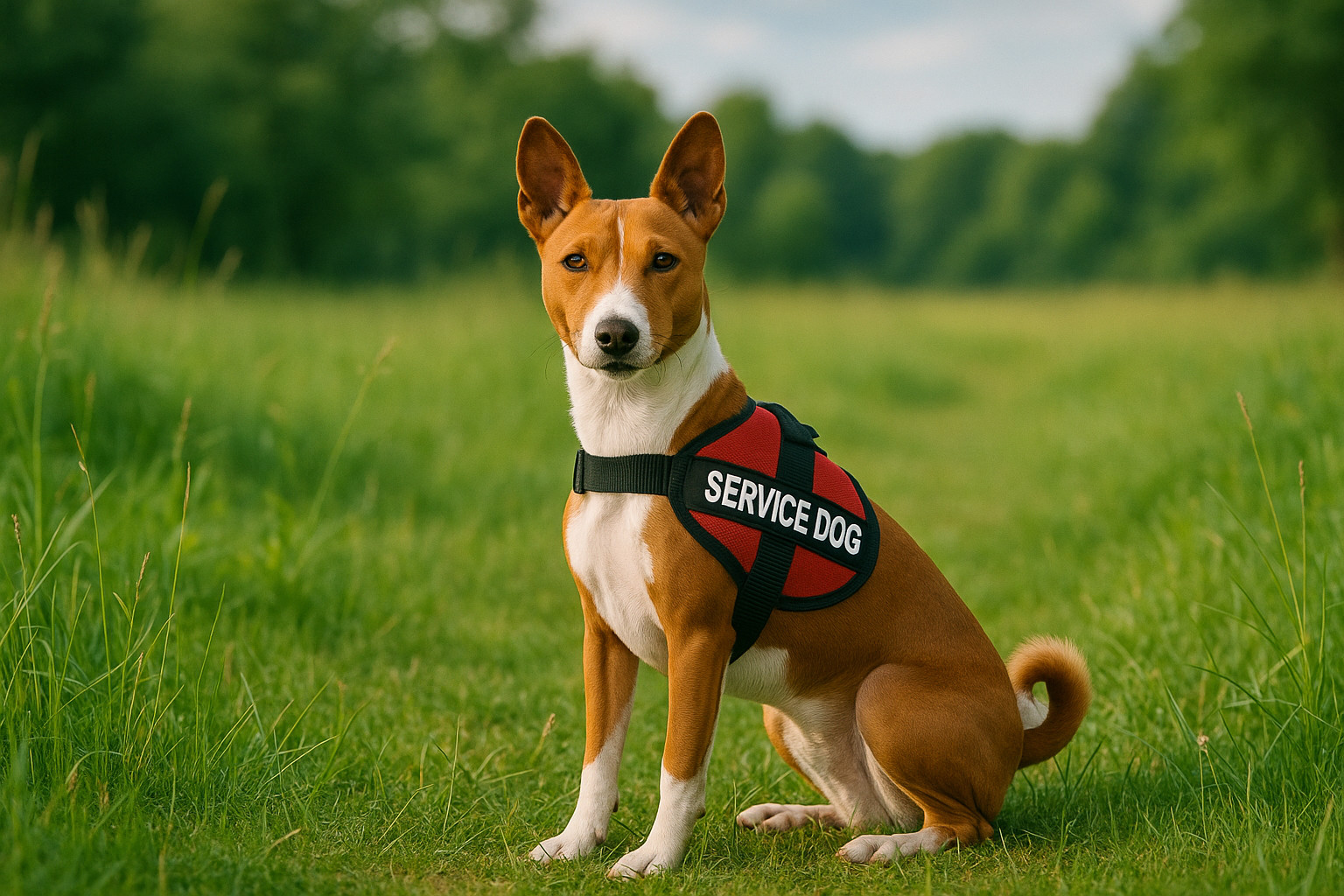Basenji as a Service Dog

The consideration of the Basenji breed as a service dog presents a unique discussion due to its distinctive characteristics and history. Known as the "barkless dog," the Basenji hails from Central Africa and carries a reputation for intelligence, independence, and vibrant energy. While these intriguing attributes have attracted many dog enthusiasts, the suitability of a Basenji as a service dog requires a meticulous examination. This article will delve into various aspects to assess the Basenji’s potential and limitations as service animals.
Basenji Overview
The Basenji stands out not only for its unusual vocalizations but also for its unique appearance and personality. It is an ancient breed that has served humans in Africa as a hunting companion. The Basenji exhibits both physical and behavioral traits that are markedly different from many common service dog breeds, thus necessitating a thorough analysis of its capabilities and limitations in this role.
Physical Characteristics
The Basenji sports a compact, athletic build ideal for swift movement, with an average weight ranging from 22 to 24 pounds and a height of about 16 to 17 inches. This size comfortably places them into the small to medium category, allowing for convenience in house spaces without requiring enormous upkeep in space or resources. The breed’s coat is short and fine, reducing grooming needs—a potential advantage for handlers who may have physical limitations.
Their tightly curled tail, sleek build, and wrinkled forehead give them a distinct and elegant appearance. However, their comparatively smaller size might limit their capacity to perform tasks requiring physical strength or to support mobility assistance. As a result, while they possess agility and speed, Basenjis may not be suitable for roles involving guiding or pulling, where more brute strength is necessary.
Temperament and Attitude
The Basenji's temperament is characterized by independence and curiosity. They possess a strong drive to explore and interact with their environment, a trait that can be both an asset and a challenge depending on the task at hand. This breed's intelligence is comparable to that of highly regarded service dogs, but their independent nature might make them less obedient in structured or repetitive tasks.
In public or stressful environments, Basenjis are generally calm, though their alertness can translate into distractibility. Their lack of barking—replaced instead with unique vocalizations called "baroos"—could be advantageous in maintaining a quiet atmosphere but may also limit their ability to communicate certain warnings effectively.
While inherently friendly, they might not be as socially affectionate as breeds like Labrador Retrievers, which thrive on human interaction and thus are often more readily seen in public service roles. Basenjis form strong bonds with their handlers, though their loyalty is often balanced by a degree of stubbornness, presenting potential challenges for training purposes.
Types of Service Work
The application of Basenjis in service work may best align with roles that leverage their strengths in agility, intelligence, and sensory perception. Basenjis could potentially excel in:
- Medical Alert: Their heightened senses and awareness make them candidates for detecting changes in their handler's body language or smells that could indicate medical issues, such as impending seizures or drops in blood sugar.
- Therapeutic and Emotional Support: Their small size and engaging, vibrant nature make them suitable for emotional support roles where providing comfort and uplifting companionship is paramount.
Nevertheless, the Basenji's independence and potential for stubborn behavior may render them less ideal for:
- Mobility Assistance: Tasks demanding significant physical involvement or strength.
- Guidance Roles: As these require unwavering obedience and consistent command adherence.
Health Considerations
The health of a service dog is paramount due to the physical and mental demands placed on them. Basenjis are relatively healthy but share certain hereditary health concerns that could impact their suitability for service roles, including:
- Fanconi Syndrome: A genetic disorder affecting renal tubular function, necessitating ongoing medical supervision.
- Progressive Retinal Atrophy (PRA): A degenerative disease affecting the retina, potentially leading to vision loss.
- Hip Dysplasia: Although less common in smaller breeds, this condition affects joint function and could impede service tasks involving prolonged physical activity.
Considering these health issues, it is crucial for prospective handlers to ensure genetic testing and regular health checks are prioritized to mitigate risks and ensure a laborious training process isn’t detrimentally affected.
Training and Suitability
Training a Basenji as a service dog can be complex due to its independent mindset. While highly intelligent, they require consistent, reward-based training methods and may benefit from trainers experienced in handling willful breeds. Engaging their intelligence through varied tasks and strong incentives will enhance their learning experiences.
Suitability concerns arise from their initial reluctance toward repetitive tasks and potentially insufficient responsiveness compared to more traditionally utilized service breeds. Basenjis thrive in roles where problem-solving and quick situational assessments are critical, yet they might struggle in long-term obedience roles without consistent stimulation and variety.
Summary of Basenji
In considering the Basenji for service dog roles, it is imperative to weigh their unique characteristics against the operational demands of specific tasks. The breed’s independence, while challenging in a structured training environment, can be advantageous in roles requiring a degree of autonomy and situational awareness.
- Strengths:
- Alertness and keen sensory perception make them ideal for detection roles.
- Compact and manageable size suits urban and home environments.
- Low grooming requirements are ideal for handlers with physical limitations.
- Weaknesses:
- Prone to independence, possibly limiting obedience.
- Susceptibility to genetic health issues such as Fanconi Syndrome or PRA.
- Limited capability for tasks requiring physical exertion or repetitive command following.
- Ideal Roles:
- Medical alert for conditions like diabetes or seizures.
- Emotional support for individuals needing companionship.
Ultimately, the Basenji's potential as a service dog lies in leveraging its distinctive traits within suitable roles that maximize its attributes while minimizing the impact of inherent limitations. Their success as service animals largely depends on careful consideration of individual temperament, health, and the specific needs of the handler.











